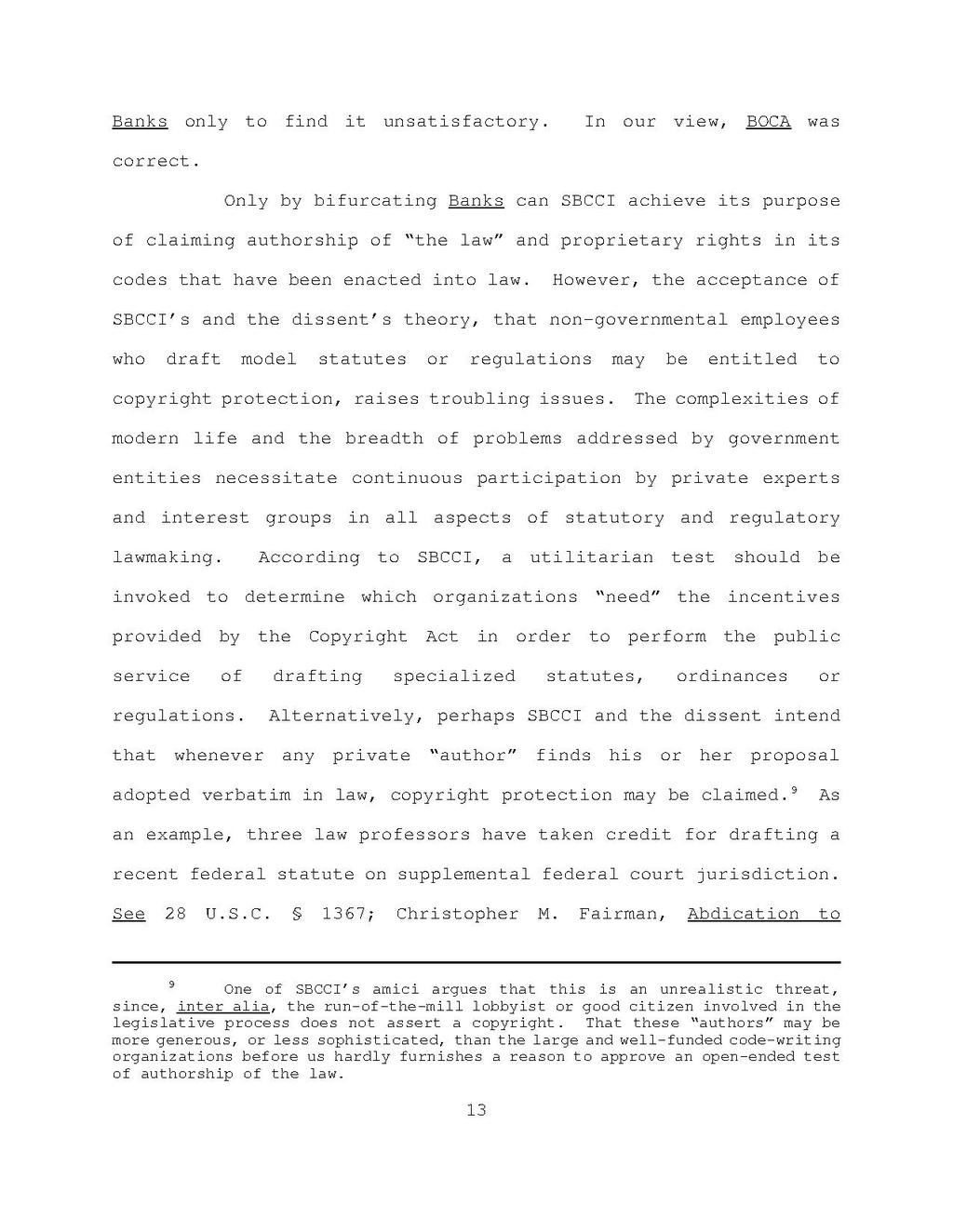Banks only to find it unsatisfactory. In our view, BOCA was correct.
Only by bifurcating Banks can SBCCI achieve its purpose of claiming authorship of "the law" and proprietary rights in its codes that have been enacted into law. However, the acceptance of SBCCI's and the dissent's theory, that non-governmental employees who draft model statutes or regulations may be entitled to copyright protection, raises troubling issues. The complexities of modern life and the breadth of problems addressed by government entities necessitate continuous participation by private experts and interest groups in all aspects of statutory and regulatory lawmaking. According to SBCCI, a utilitarian test should be invoked to determine which organizations "need" the incentives provided by the Copyright Act in order to perform the public service of drafting specialized statutes, ordinances or regulations. Alternatively, perhaps SBCCI and the dissent intend that whenever any private "author" finds his or her proposal adopted verbatim in law, copyright protection may be claimed.[1] As an example, three law professors have taken credit for drafting a recent federal statute on supplemental federal court jurisdiction. See 28 U.S.C. § 1367; Christopher M. Fairman, Abdication to
- ↑ One of SBCCI's amici argues that this is an unrealistic threat, since, inter alia, the run-of-the-mill lobbyist or good citizen involved in the legislative process does not assert a copyright. That these "authors" may be more generous, or less sophisticated, than the large and well-funded code-writing organizations before us hardly furnishes a reason to approve an open-ended test of authorship of the law.
13
